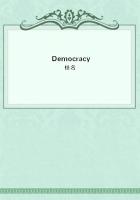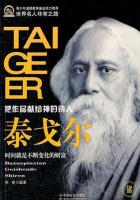Adam Smith then tells us that one should exclude from the net revenue, i.e., from the revenue in its specific meaning, the entire fixed capital, and also the entire portion of the circulating capital which is required for the maintenance and repair of the fixed capital, and for its renewal, in fact all capital not in a bodily form intended for the consumption-fund.
"The whole expense of maintaining the fixed capital, must evidently be excluded from the neat revenue of the society. Neither the materials necessary for supporting their useful machines and instruments of trade . . . nor the produce of the labour necessary for fashioning those materials into the proper form, can ever make a part of it. The price of that labour may indeed make a part of it; as the workmen so employed may place the whole value of their wages in their stock reserved for immediate consumption.
But in other sorts of labour, both the price [i.e., the wages paid for this labour] and the produce [in which this labour is incorporated]
go to this stock, the price to that of the workmen, the produce to that of other people, whose subsistence, conveniences, and amusements, are augmented by the labour of those workmen." (Book II, Ch. 2, pp. 190, 191.)Adam Smith comes here upon a very important distinction between the labourers employed in the production of means of production and those employed in the immediate production of articles of consumption .
The value of the commodities produced by the first-named contains a constituent part which is equal to the sum of the wages, i.e., equal to the value of the part of capital invested in the purchase of labour-power. This part of value exists bodily as a certain quota of the means of production produced by the labourers. The money received by them as wages is their revenue, but their labour has not produced any goods which are consumable, either for themselves or for others. Hence these products are not an element of that part of the annual product which is intended to form a social consumption-fund, in which alone a "neat revenue" can be realised. Adam Smith forgets to add here that the same thing that applies to wages is also true of that constituent of the value of the means of production which, being surplus-value, forms the revenues (first and foremost) of the industrial capitalist under the categories of profit and rent. These value-components likewise exist in means of production, articles which cannot be consumed. They cannot raise articles of consumption produced by the second kind of labourers in a quantity corresponding to their price until they have been converted into money; only then can they transfer those articles to the individual consumption-fund of their owners. But so much the more should Adam Smith have seen that that part of the value of the annually begotten means of production which is equal to the value of the means of production functioning within this sphere of production -- the means of production with which means of production are made -- hence a portion of value equal to the value of the constant capital employed here, cannot possibly be a value constituent forming revenue, not only on account of the bodily form in which it exists, but also on account of its functioning as capital.
With regard to the second kind of labourers -- who directly produce articles of consumption -- Adam Smith's definitions are not quite exact.
For he says that in these kinds of labour, both the price of labour and the product "go to" the stock reserved for immediate consumption, "the price " (i.e., the money received in wages) "to that of the workmen , the produce to that of other people, whose subsistence, conveniences and amusements, are augmented by the labour of these workmen." But the labourer cannot live on the " price " of his labour, the money in which his wages are paid; he realises this money by buying articles of consumption with it. These may in part consist of classes of commodities produced by himself. On the other hand his own product may be such as goes only into the consumption of the exploiters of labour.
After Adam Smith has thus entirely excluded the fixed capital from the "net revenue" of a country, he continues:
"But though the whole expense of maintaining the fixed capital is thus necessarily excluded from the neat revenue of the society, it is not the same case with that of maintaining the circulating capital. Of the four parts of which this latter capital is composed, money, provisions, materials, and finished work, the three last, it has already been observed, are regularly withdrawn from it, and placed either in the fixed capital of the society, or in their stock reserved for immediate consumption. Whatever portion of those consumable goods is not employed in maintaining the former" [the fixed capital] "goes all to the latter" [the fund for immediate consumption], "and makes a part of the neat revenue of the society. The maintenance of those three parts of the circulating capital, therefore, withdraws no portion of the annual produce from the neat revenue of the society, besides what is necessary for maintaining the fixed capital." Book II, Ch. 2, p. 192.)It is sheer tautology to say that that portion of the circulating capital which does not serve for the production of means of production goes into that of articles of consumption, in other words, into that part of the annual product which is intended to form society's consumption-fund. However, the immediately following passage is important:
"The circulating capital of a society is in this respect different from that of an individual. That of an individual is totally excluded from making any part of his neat revenues, which must consist altogether in his profits.















